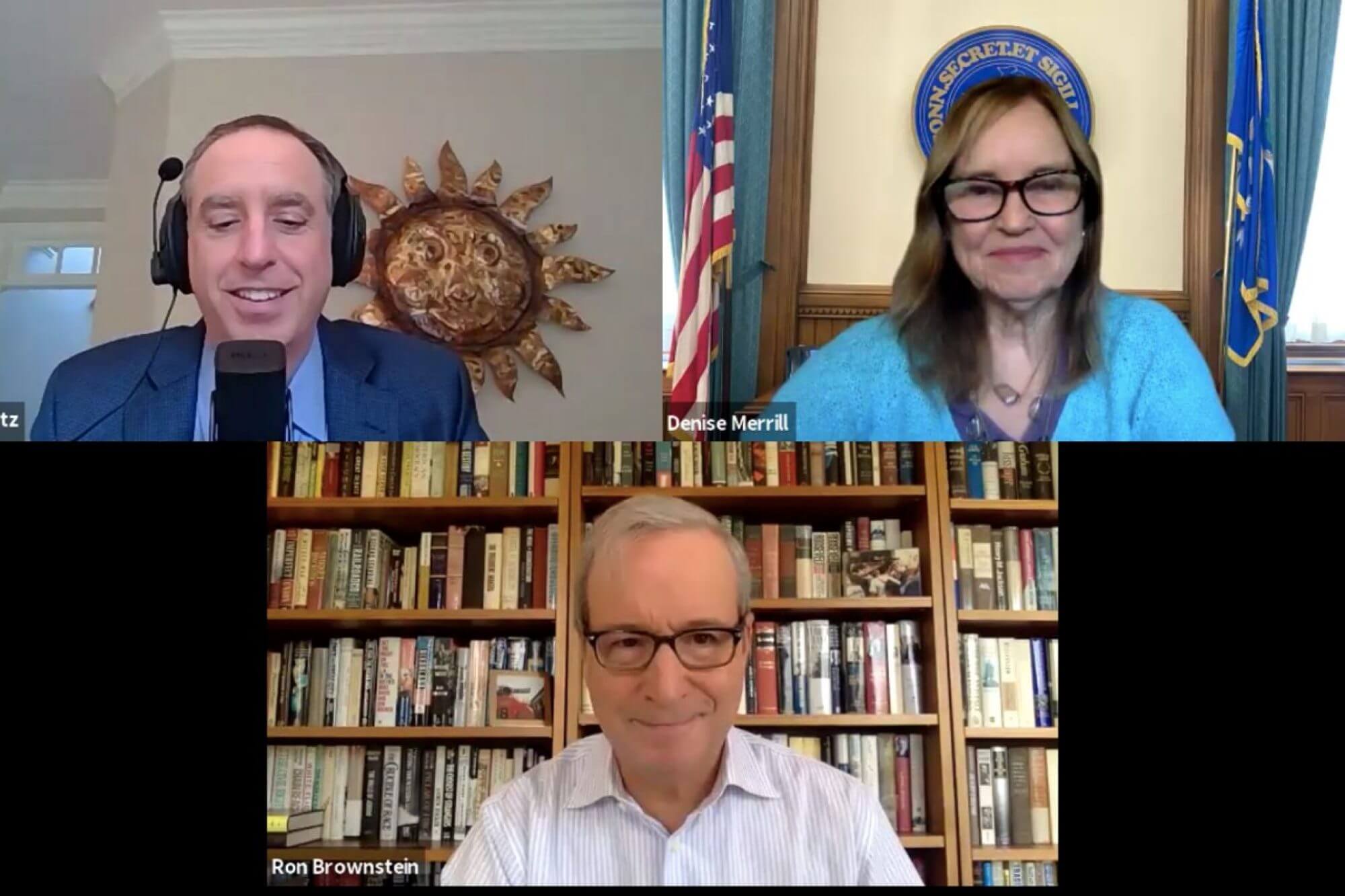
Presidential election to offer unique challenges, experts warn
September 21, 2020

September 21, 2020

One situation that fuels this distrust is foreign influence and, as recently as this month, the FBI director has warned that Russia is actively conducting a campaign to spread this information to interfere in the presidential election, according to Doug Schwartz, associate vice president of the Quinnipiac Poll.
"What's most stunning to me is the amount of money that is being spent internationally by more than just Russia," said Denise Merrill, Connecticut Secretary of the State. "Other countries are certainly joining in the fray in trying to influence American opinion about our elections."
Foreign influence extends throughout local, state and national elections, she said. The biggest risk to democracy is phishing emails that can corrupt an entire voter registry, Merrill warned. While it is uncovered very quickly, the damage to public trust in elections is done — and that is the most dangerous thing of all.
Schwartz said that there have been a number of people who say that President Donald Trump is spreading disinformation about the security and integrity of mail-in voting and about the legitimacy of the election itself.
“I think President Trump sees himself as the president of red America and, in many ways, as a wartime president for red America against blue America,” said Ron Brownstein, a political correspondent and analyst. “I mean his goal from the beginning has not been to win over the states or the metro areas within the states that have been most resistant to him; it's been to demonize them and use them as a foil to mobilize his own base.”
Brownstein continued, stating that every element of the federal government is being molded into a weapon for partisan advantage in a way that has not been seen before.
Merrill said that she believes this election will make the election of 2000 look quaint; Brownstein agreed.
“If it is decisive, it's possible that enough Republicans will say, ‘OK, that's it. We're not going down this road.’ But I don't know if you can count on Mitch McConnell to be kind of the voice of reason to say let's not fight this battle to the end,” Brownstein agreed. “I think that if there is a question of whether you know if Biden appears to have won and Trump appears to be trying to reverse that, I think you’re going to see more people in the street than at any point in American history.”
Brownstein said that believes the fundamental dividing line between the parties is no longer economic class, but rather the attitudes toward demographic, cultural and economic changes that are reshaping this country.
“There were multiple studies done by multiple political scientists —one group from UCLA and another from Brian Schaffner at Tufts — that found that the single best predictor, by far, of who voted for Trump in 2016 was not feeling economic distress, it was the belief that systemic racism and sexism does not exist,” said Brownstein. “In 2018, those two variables were, again, the strongest predictor of who voted Democrat and Republican, and the relationship was much stronger than it had been in the previous midterm.”
The mentality of the election is not the only aspect that has changed, he said, how many Americans will be voting has changed as well, though maybe not as much as originally thought.
“I think the estimates are from Charles Stewart at MIT and others, such as the EIC, are that roughly a quarter of Americans voted by mail, maybe a little just under that in 2016,” said Brownstein. “I think the original estimates are maybe half of Americans would vote by mail this time, but I think enough people have been spooked by what the president has said and about what the U.S. Postal Service has said that there may be somewhat less than that.”
Brownstein explained that even though it may be less than estimated, getting a mail-in ballot and returning it in person is still going to be an attractive option for many.
Merrill said that the distrust and questions that have been raised over mail-in ballots cannot be overstated. Buying ballot boxes was a big deal because they’ve never been used in Connecticut and many raised concerns over the security of them, Merrill continued, but she believes there will still be many people voting by mail.
“There really are a lot of people very fearful of contracting COVID,” Merrill said. “I think the fact that we took steps to protect people's health and not have them make a choice between their health and their vote is very important to people.”
Merrill stressed that she believes people can feel safe going to the polling places because Connecticut has made sure there is PPE and that everyone will be following CDC guidelines.
Merrill said Connecticut doesn’t usually have much of a problem with defective ballots, though, for the latest primary, there was a problem of late-arriving ballots.
“We changed the rules, just for the primary and the governor issued an executive order that allowed us to become briefly a postmark state,” said Merrill. “We are still not a postmark state for the general election. That was a one time executive order for the primary.”
Schwartz said that two-thirds of Connecticut voters are expected to vote by absentee ballot, and Merrill said that as a result, Connecticut was awarded a grant that allowed millions of dollars to go to the towns to secure extra assistance. It’s not easy to bring in part-time help, Merrill said, but they are working very hard.
“Vote early,” Merrill implored. “Your vote does matter. It matters tremendously.”

Quinnipiac Today is your source for what's happening throughout #BobcatNation. Sign up for our weekly email newsletter to be among the first to know about news, events and members of our Bobcat family who are making a positive difference in our world.
Sign Up Now